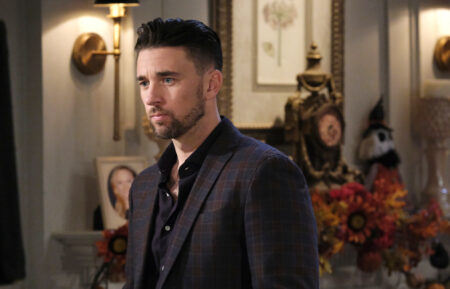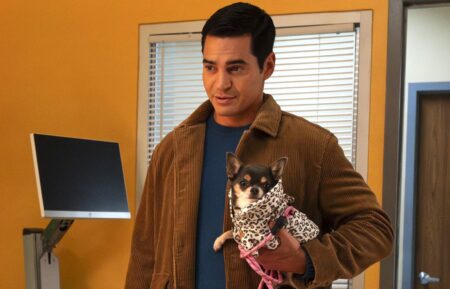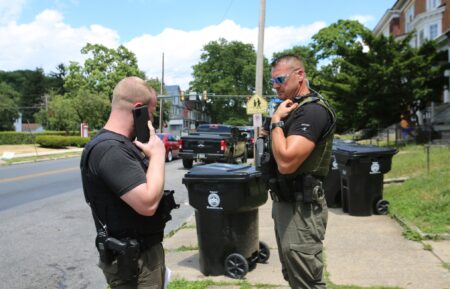Why Maggie and Negan’s Relationship Is ‘The Walking Dead’s Most Complex—and Exhausting
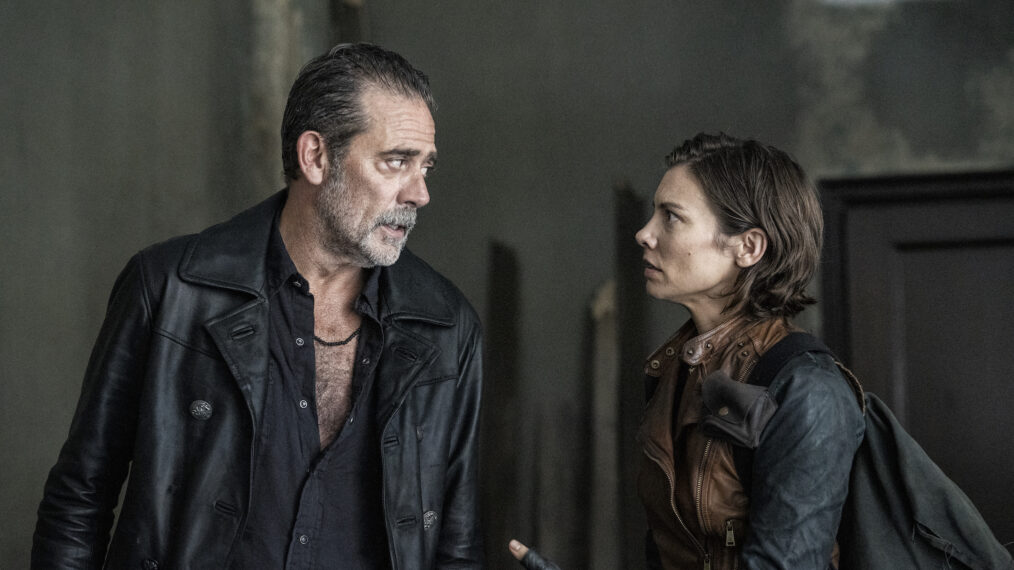
“If I can’t look at you some days, if I can’t work with you… it’s because all I have are my memories. And I don’t want to remember Glenn like that.” That’s Maggie (Lauren Cohan) talking to Negan (Jeffrey Dean Morgan) in The Walking Dead’s series finale, but on a more abstract level, her words have a larger application: this franchise’s insistence on pairing her character with the man who killed her husband. Love it or hate it, putting Maggie and Negan together again was a storytelling move that surprised many when the spinoff was first announced. And much like Maggie, we’re not always sure how we feel about it.
If you can put the graphic Lucille-ing scene out of your mind, Maggie and Negan are undoubtedly a badass, dead-slaying dynamic duo. They make an excellent team for all the polluted water under the bridge of their relationship. As we saw in Dead City’s opening scene, they have more in common than they’d like to admit. There’s no doubt that Cohan and Morgan are dynamite onscreen together. And it’s hard to blame AMC for milking the “what the hell?” angle of a spinoff devoted to the two not-quite-bitter-anymore enemies joining forces (although most correctly predicted the alliance had something to do with saving Maggie’s son).
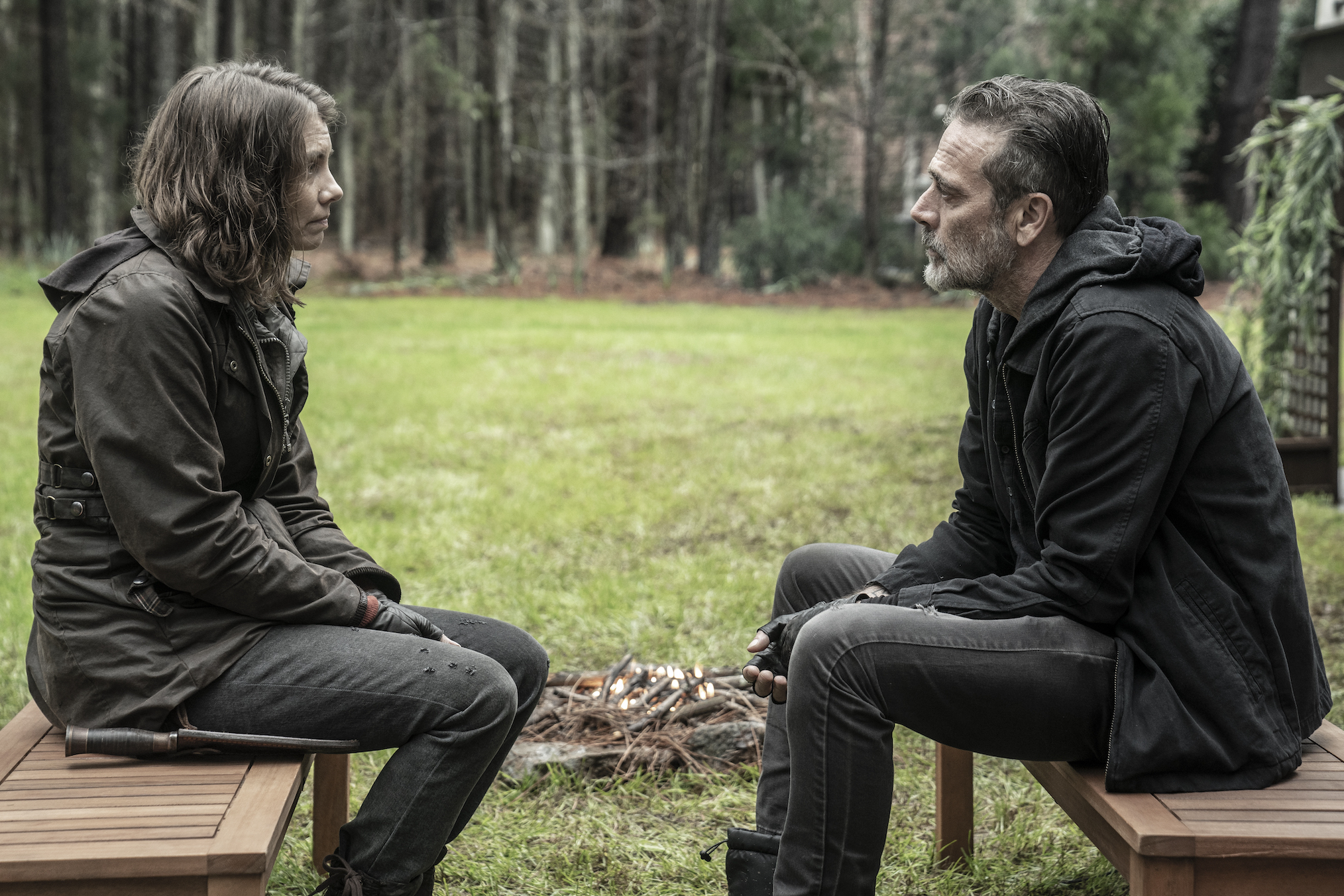
Jace Downs/AMC
From a writing perspective, the Maggie-Negan anti-bond is a goldmine. The Walking Dead was no stranger to multilayered relationships, but these two have more layers than a whole box of onions. There’s just so much there; loathing, distrust, anger, resentment, regret, respect, remorse. Maggie and Negan have a complexity arguably unmatched by any other pairing on these shows simply because their relationship pulls in so many different and uncomfortable directions. Maggie despises Negan, but she needs him. Negan regrets what he did to Maggie, but he resents that he’ll never be able to stop looking over his shoulder around her. They have to lean on each other while wanting nothing more than to push each other away. As an audience member, that’s fun to watch.
But on the other hand… how long should this franchise force Maggie’s character to work with the man who killed her husband and laughed as he did it? Plenty have said it’s illogical that she hasn’t just killed him already. While that never happened in the comics, Maggie and Negan didn’t spend this much time together in the source material. The Reapers arc in the main show—an early example of The Walking Dead connecting Maggie and Negan for the drama of it all—was created for TV, and Dead City isn’t based on pre-existing material. The franchise knows what it has with Cohan and Morgan, and characters who hate each other are arguably more interesting than characters who love each other. How long, though, should Maggie be expected to endure her trauma and be kept from healing?
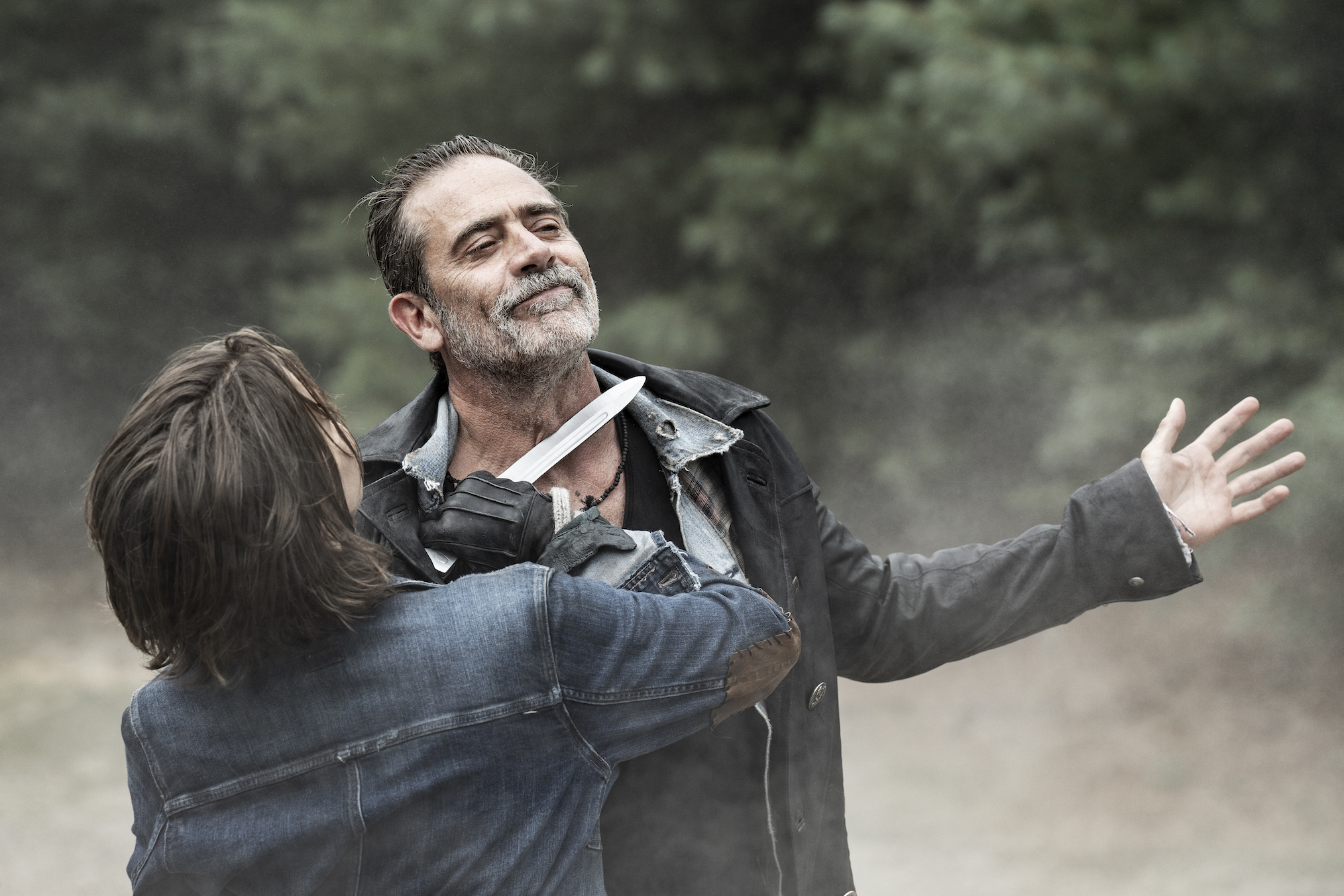
AMC
Dead City reawakens demons that these characters put to rest in the series finale. In so doing, it neutralizes one of the show’s most moving scenes (bummer). It does occasionally border on ludicrous that Maggie voluntarily works with a man who 1. Killed the love of her life, 2. Had a harem of wives, and 3., was responsible for the deaths of many people about whom she cared deeply. Negan almost killed her in that subway tunnel, too; while they’re not exactly letting bygones be bygones, sometimes it’s difficult to see why these characters would have anything to do with each other without the plot demanding it.
And that’s the Maggie-Negan Achilles heel. As powerful, multifaceted, and intriguing as their dynamic is, it can often feel repetitive, and that cycle drives hate toward a character undeserving of it. It’s not uncommon to find comment sections lamenting that Maggie’s always angry with Negan or that she should move on and accept that he’s changed. (Which she did in the series finale.) Maggie shouldn’t be expected to embrace Negan or even to completely trust him after what he’s done. But if she doesn’t, the story tends to wander in circles, with her predominant emotions limited to anger and suspicion. That does her character no favors and doesn’t help Negan much, either. Viewers see them have the same arguments, shoot each other the same glares, and re-settle old scores that get older with every episode.
Was AMC wrong to make Dead City? No. Obviously, the Maggie and Negan connection sells—premiere numbers were encouraging, and the New York City setting likely piqued people’s interest, too. But when all’s said and done, if Maggie and Negan both survive, our hope would be that they can go their separate ways—permanently. If Maggie’s ever to be truly happy, she needs not to be reminded of her husband’s gruesome final moments on a daily basis; for Negan’s part, he’d likely be more at peace far from Maggie Rhee. Sure, it’s fun to see Maggie and Negan mowing down hordes of zombies together. But when all’s said and done, we think it’s best if they go their separate ways. We don’t want to remember Glenn like that, either.
The Walking Dead: Dead City, Sundays, 9/8c, AMC
From TV Guide Magazine
Crime, Comedy & Convenience Stores: Unwrapping Hulu's 'Deli Boys' With the Cast
Cupcakes, corndogs…and cocaine?! Two brothers find themselves in a hilarious pickle when they inherit an unseemly bodega biz in Hulu’s new comedy Deli Boys. Find out how The Sopranos and Real Housewives of Orange County influenced the cast. Read the story now on TV Insider.






